If ever there were a book for our time, this is it. Sarah Bowen has really captured a moment and set of issues with Divided Spirits: Tequila, mezcal, and the politics of production. With the new NOM proposal dropping over Thanksgiving along with its béte noir 199 the recent history and investigation into what makes the tequila and mezcal industries tick in Divided Spirits will bring you right up to speed. We’re at this moment in time when big tequila remains incredibly popular, mezcal is a newcomer, and indie tequilas are proving just what artisans can do with blue agave. But the margins and growth are all on mezcal and indie tequila’s side, consumers want distinctive drinks that at least have a story, ideally one that’s true. You see the same trend everywhere, it’s what drove major brewers to purchase major beer indies like Lagunitas and Ballast Point late last year and what drove Patrón to create Roca.
How did we get here? It’s pretty simple: While tequila grew by leaps and bounds as an incredible export through the post war era it really took Patrón and its followers in the 80’s to establish tequila as something with its own unique coolness factor. That led to enormous demand for tequila; to sip it, shoot it, mix it in cocktails. Hell, Robert Towne, who wrote Chinatown among many other classic movies, even titled his 1988 film Tequila Sunrise in the midst of this boom. Soon enough tequila was stocked in every bar worth its salt while tequila bars proliferated and the margarita became the most popular cocktail in the United States, if not the world. That much demand meant enormous production which, in the inexorable capitalist logic to these things, led to the complete industrialization of tequila. The bottles, dollars, land, agaves, and everything involved in this story are staggering. But it all meant one thing, what was once a dynamic and original spirit had become sadly commodified.
That’s a nice pat history but Sarah Bowen really digs into the laws and politics that paved the road to this destination. As Chantal Martineau detailed in How the Gringos Stole Tequila, tequila is really a product of its time and place. It came out of the enormous haciendas in Jalisco, where the owners were focused on scale and economic progress so they industrialized as fast as possible pushing their native spirit into efficiencies of scale. They also wrote the laws to protect and refine what it means to be tequila. Really that means that tequila was industrialized and the Denominación de Origen (aka DO)or appellation laws that were written were less an expression of a tradition and more a way to drive sales.
Sarah Bowen’s documentation of the progressive industrialization and weakening of tequila’s ties to its traditional past is fascinating and sad. Each adjustment to the law waters down tequila by adding things like mixtos, expanding where it can be made, and building the foundation for environmental collapse. The high flying idea of a DO so well established by European food cultures like Parmesan and Chianti were changed into a simple marketing device. The name tequila ceased to mean quality and tradition and that’s the critical problem.
Her description of tequila’s obsession with empirical measures of quality instead of traditional methods of production as the key to defining what goes into a bottle is succinct and bizarre because it so clearly comes at the cost of the product, brand, and all the people involved in it. Tequila’s DO isn’t really interested in preserving tradition, the culture that surrounds it, or a flavor. It is interested in distilling as much tequila as possible for the lowest price and has redesigned the entire production process to cut costs to reach those low prices. The casualties are human and they are manifold.
Foucault wouldn’t be out of place in this analysis, I’m sure he’d focus on the power of tequila companies, its extent, and the contradictions of globalization which is a focus of this book and much of what we talk about at Mezcalistas HQ. It’s especially important and interesting right now because mezcal is in the midst of redefining its own DO laws. Initially mezcal’s DO followed the tequila idea, the goal seemed to be, ‘let’s make as much of it as possible so that we can blow out the marketplace’ without any reference to all the incredibly varied mezcals, terroir, production methods, makers, and other factors that make it distinct, delicious, and valuable.
The battle over NOM 186 and a related proposal is a real high point and is well told here because it brings up another dynamic critical to the evolution to the mezcal world – while mezcal can only be made in Mexico much of it is consumed by foreigners who also have made it into a cult like beverage with very high material and spiritual value. In 2011 the Mexican Institute of Industrial property floated a proposal to only allow producers within the already established Denominación to use the word “agave.” As Sarah points out “The proposal was as if France had proposed granting exclusive use of the word grapes to winemakers in the Bordeaux region.” Almost simultaneously NOM 186 popped up, a new quality proposal which would have required anyone outside of the DO to use the label “Agavaceae,” allowed 49% of non agave sugars in non DO spirits, and restricted those same makers from talking about how much agave was used in their production. Welcome to the proposal for an Orwellian future! Once proposed in 2011 an enormous cry went out against it but it seemed like the massive forces of industrialization would once again get their way. But something funny happened on the way to complete industrialization of mezcal; for once the process seemed to work. The normal public comment period didn’t just pass by with devotees lamenting the change, a coordinated group of mezcal makers and aficionados in North Americans jumped in to dominate the debate until NOM 186 was withdrawn in 2012.
That was the first taste of a change in the mezcal world which has only expanded ever since. Mezcal makers in Mexico have shed any pretense of shyness and have worked through the process to created a new way of defining mezcal. The culmination of their work is a proposed law called NOM 70 which is now open for public comment. The proposal is a huge step back to the traditions that defined this spirit. It seems like the combined forces of mezcal producers and North American aficionados are pulling mezcal back towards the traditional European idea of a DO as something that recognizes an existing culture and describes how the entire web of relationships that makes it happen will function in the contemporary world.
Sarah Bowen’s account of that struggle doesn’t stop at the narrative, she also digs into the fascinating confluence of factors that made it happen because, without international consumers absolutely obsessed with mezcal, that groundswell of support wouldn’t have been present. She really gets at why these aficionados, people like me and Susan!, are involved and provides a great snapshot of the struggle over authenticity that’s so important to North Americans and globalized marketing of mezcal. This is another moment that we’re so enmeshed with that it can be difficult to see out of – it’s the basis of our craft cocktails, craft beers, small wineries, Whole Foods, Etsy, and even carries over to the Apple v everyone narrative. As Sarah documents, we all want to believe so much in the power of authenticity that we’re missing all the other things that run our world, most especially the fact that capitalism really doesn’t leave any room for the most important elements. She sums it up nicely this way:“Consumers increasingly fetishize the local, the obscure, the handcrafted – precisely those characteristics that are threatened by the pressures of globalization.” Mezcal lover, welcome to the looking glass.
After all that the conclusion of Divided Spirits is rather sanguine. At least year’s Mezcal: Mexico in a Bottle we hosted a “Future of Mezcal” discussion with Sarah Bowen, Hipocrates Nolasco of the CRM, and Wahaka’s Raza Zaidi. Sarah said some really interesting things but one of the most interesting was that once she read the CRM’s recent proposal for Nom 70 she had to rewrite the conclusion to Divided Spirits exactly because the future seemed to be changing right under her feet. On cue, the latest and potentially final text for NOM 70 was released for public comment on Thanksgiving Day. Dive in to see just how many things have changed in the recent years. The proposal is much more progressive than anything in the recent history of the tequila or mezcal industries even if it’s still obsessed with some of the same definitional issues in the tequila DO to the detriment of small farmers and distillers. And, it’s difficult to figure out how to actually comment which, despite all the democratic opening in the CRM feels like one of the continued legacies of its bureaucratic framework. We will circulate a petition to bridge that gap any day now.
Sarah is an academic which is great because she brings rigor and the social sciences analytical mindset to this topic. Even though written from an academic context it’s far from stiff or overly verbose. Au contraire, that grounding works in its favor because those copious footnotes and broad bibliography are incredible resources. Even better, this is the latest in a series of books from the University of California Press called “California Studies in Food and Culture.” The list of all the books is in the back and online, it’s stocked with some pretty impressive titles which range from the very Californian (“Zinfandel: A History of a Grape and Its Wine“) to the very global (“The Untold History of Ramen“) which should be of instant interest to many of our readers.

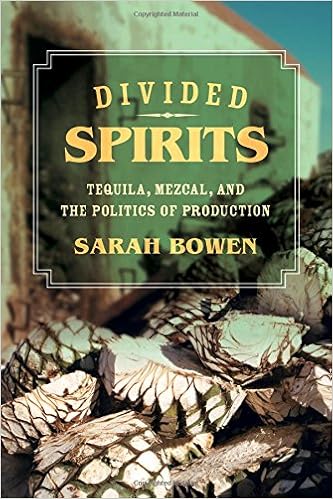
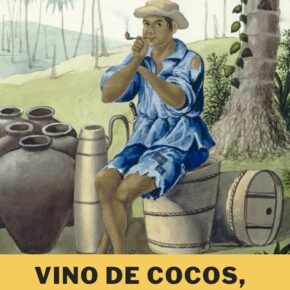
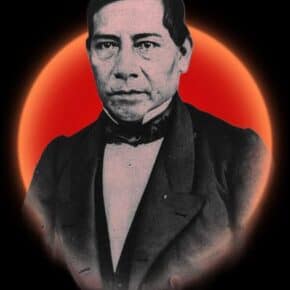
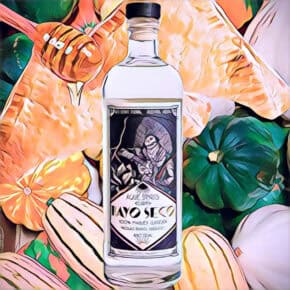
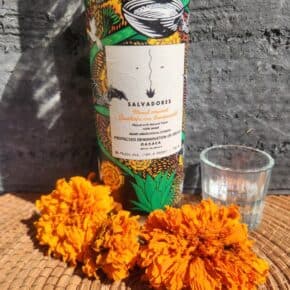







Leave a Comment